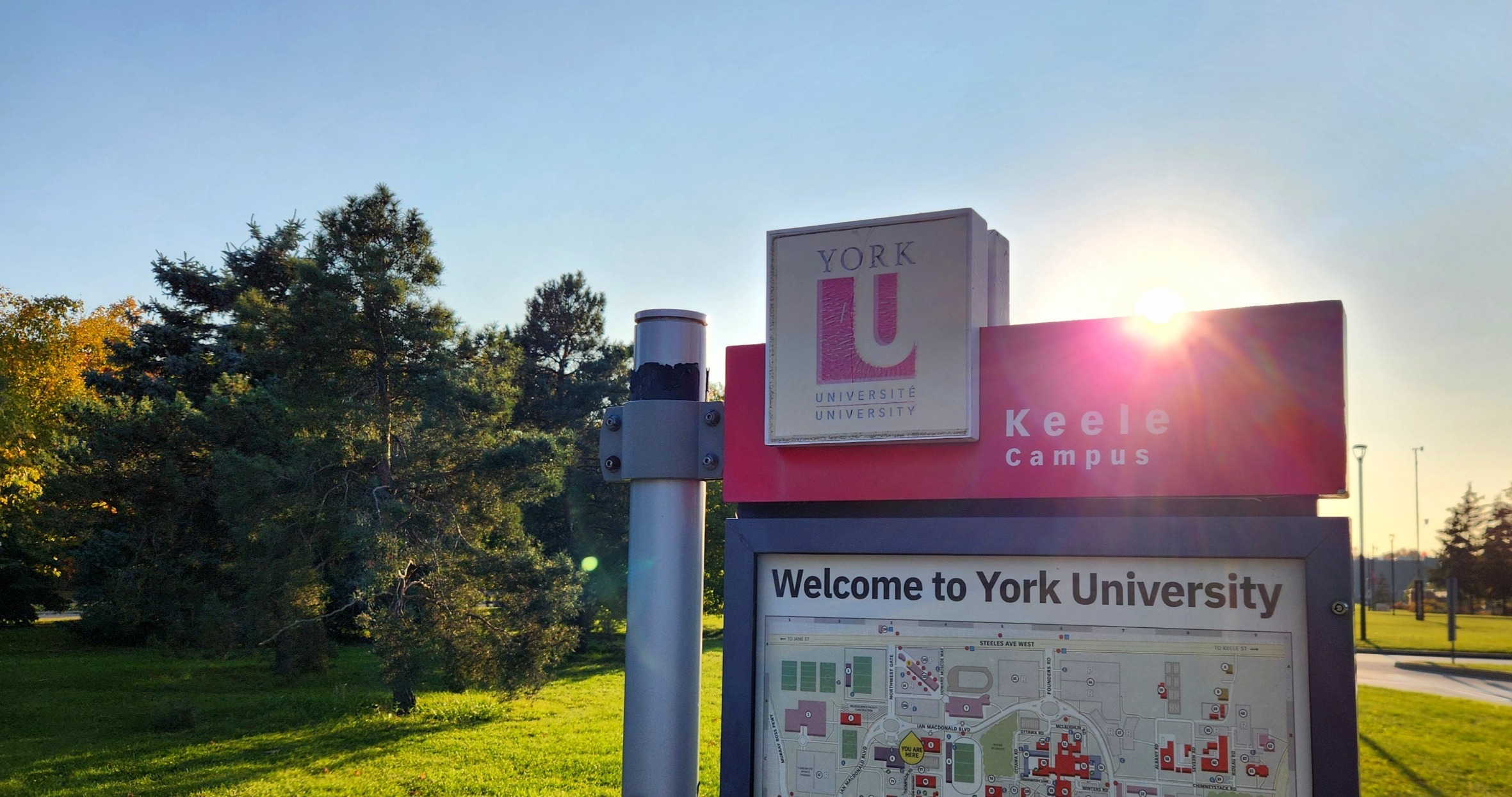For decades, York has been a hotspot for clashes between pro-Israeli and Palestinian solidarity groups. Following the Oct. 7, 2023, Hamas attack on Israel and the launch of what the United Nations Human Rights Council calls a genocidal attack on the Palestinian people by the Israel Defense Forces (IDF), these tensions erupted with renewed strength, tearing down the fabric of York’s communities.
The Surveilled & Silenced Report, based on the findings of surveys conducted by Race Equity Caucus (REC) and Palestinian Solidarity Collective (PSC-York), alleges that on several occasions the university had misused its power over the academic and personal freedoms at York to maintain ‘neutrality’ on the subject of Palestine.
The report divides York’s treatment of Palestinian supporters into four categories: the alleged weaponization of community safety rhetoric to frame Palestinian supporters as a threat, the alleged use of police to discipline protest movements, the alleged failure to address instances of anti-Palestinian racism, and concerns over administration’s alleged partnerships with “companies and institutions engaged in genocidal violence.”
According to the report, “many survey respondents, both REC and PSC, consider that their voices, their knowledge, and their efforts to bring attention to Palestine have been systematically and effectively repressed.”
The report also notes that while the university has closely monitored its communities for instances of anti-Semitism, statements of Palestinian solidarity have been reprimanded as “inflammatory” and silenced under the pretense of “community safety.”
One example of this alleged bias occurred on Oct. 13, 2023, when the administration demanded the resignation of several student union leaders over the suggested anti-Semitic statement in support of Palestinian liberation, without mentioning the “declared genocidal campaign in Gaza by the IDF.”
Today, the majority of survey respondents feel the university is not a safe space “to have conversations on Palestine and contextual realities regarding the State of Israel,” states the report.
Claims have also emerged of instructors altering teaching plans to navigate around the subject of Palestine in fear of retribution from the university.
A notable instance of alleged pushback against discussing Palestinian issues occurred on Jan. 30, 2024, when President Rhonda Lenton condemned the “Toolkit on Teaching Palestine” developed by the Palestinian Solidarity Working Group, which consists of “members from diverse identities, including both Palestinian and Jewish backgrounds.”
According to a statement from CUPE 3903 on Feb. 4, “the toolkit was developed as a resource for members who wanted to participate in a teach-in action in response to a call for global solidarity with Palestine from Jan. 21 – 28.”
In her statement, Lenton said the senior administration did not find the toolkit to be “in accordance with the rightful expectations of the university as an employer, the needs of the students, and the legitimate claims of the community.”
In the report, REC members have attributed this censorship to the administration upholding “a definition of anti-Semitism that includes any critique of the state of Israel and has demonstrated this through the punitive sanctions it has given to faculty, students, and staff for their Palestinian advocacy.”
The report goes on to state that these retaliatory measures reach beyond the infringements on academic freedom. On several instances, York has employed Toronto Police, allegedly to discipline Palestinian supporters.
On Feb. 2, 2024, Toronto Police Services interrupted the lecture titled “The Palestinian Struggle for Liberation: Aspirations for a Decolonial Life” by Muhannad Ayyash. TPS informed students “that they had been called there by the university given that there was a potentially dangerous ‘major event’ taking place on campus,” Ayyash wrote in an Opinion article published by the Breach.
On June 6, 2024, TPS dismantled a student encampment in support of Palestine in the Harry W. Arthurs Common. The encampment was issued with a trespass notice and removed from the scene in swift action.
As a result of these and other sanctions, 77.8 per cent of REC survey respondents do not feel York fosters a sense of safety and belonging.
REC report also featured testimonies from outspoken Palestinian advocates who described daily microaggressions from faculty and staff who implied that the Palestinian solidarity movement caused undue unrest on campus. REC believes that such narratives are created and reinforced by the university’s dismissive and, at times, hostile treatment of the Palestinian liberation movement.
The report alleges that this pattern of hostility has historically been caused by the “university’s ideological and material investments in/with the Israeli state.”
The report authors and student leadership demanded that “York administration disclose its financial holdings, divest immediately and permanently from all endowments, investments and other financial holdings from Israeli military and security goods; and, boycott all current and future partnerships with Israeli academic institutions that are complicit in the violent occupation of Palestine.”
York’s Deputy Spokesperson, Yanni Dagonas, has issued the following statement in response to the report’s findings: “Although the university has concerns with the report’s methodology and disagrees with the report’s assertions, we understand and appreciate the attention to the needs of Palestinian and Palestinian-aligned community members, particularly given the ongoing violence and suffering in the region.
“York remains highly invested in the experiences of all members of our very diverse community, including hearing about their views and lived experiences.
“The University looks forward to meeting with the report’s authors, at their request, to engage directly with them and find ways to work together to focus on combating all forms of racism and hatred, including anti-Palestinian racism, Islamophobia, and antisemitism.”




